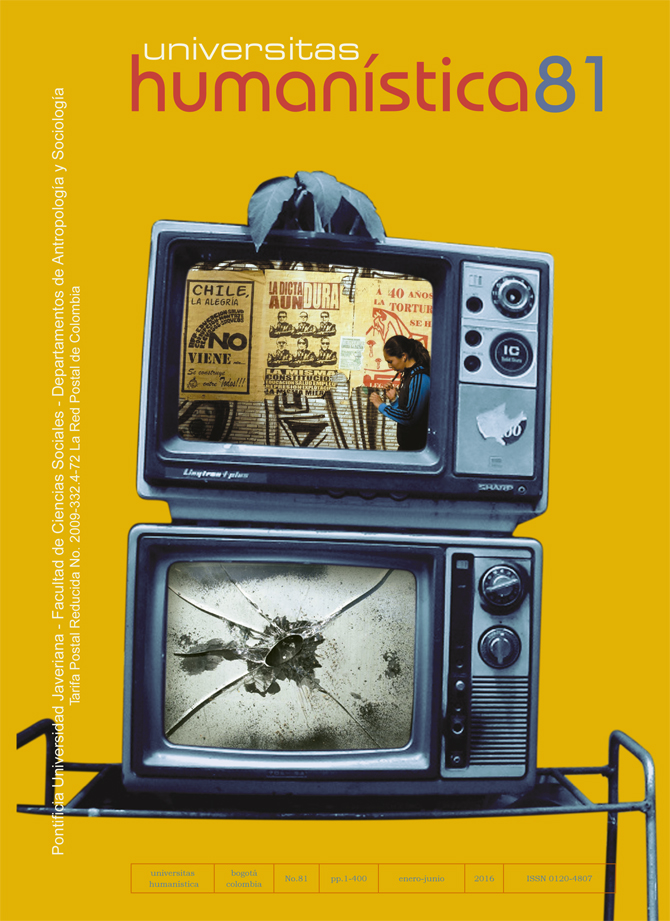Resumen
Este análisis visual revisa la publicidad política virtual de la organización homosexual Fundación Iguales durante el primer gobierno de derecha del Chile post-dictadura. Deteniéndose en distintos códigos de dispositivos audiovisuales, este artículo reconoce la construcción simbólica, afectiva y corporal a través de la cual se presenta una ciudadanía homosexual en redes sociales. Interesa reconocer cómo las estrategias audiovisuales políticas han facilitado un ingreso receptivo de ‘lo homosexual’ en la política neoliberal chilena. Se describe la producción de sentido que otorga legitimidad y no rechazo a la representación del nuevo ciudadano gay y qué imágenes audiovisuales realizan esta validación de lo homosexual. Finalmente, se realiza una crítica a los discursos políticos de la tolerancia y la igualdad que resguardan la construcción de narrativas políticas a favor de la diversidad sexual bajo consignas comunicacionales liberales.

La revista Universitas Humanística se encuentra registrada bajo la licencia Creative Commons Reconocimiento 4.0 Internacional. Por lo tanto, esta obra se puede reproducir, distribuir y comunicar públicamente en formato digital, siempre que se reconozca el nombre de los autores y a la Pontificia Universidad Javeriana. Se permite citar, adaptar, transformar, autoarchivar, republicar y crear a partir del material, para cualquier finalidad (incluso comercial), siempre que se reconozca adecuadamente la autoría, se proporcione un enlace a la obra original y se indique si se han realizado cambios. La Pontificia Universidad Javeriana no retiene los derechos sobre las obras publicadas y los contenidos son responsabilidad exclusiva de los autores, quienes conservan sus derechos morales, intelectuales, de privacidad y publicidad.
El aval sobre la intervención de la obra (revisión, corrección de estilo, traducción, diagramación) y su posterior divulgación se otorga mediante una licencia de uso y no a través de una cesión de derechos, lo que representa que la revista y la Pontificia Universidad Javeriana se eximen de cualquier responsabilidad que se pueda derivar de una mala práctica ética por parte de los autores. En consecuencia de la protección brindada por la licencia de uso, la revista no se encuentra en la obligación de publicar retractaciones o modificar la información ya publicada, a no ser que la errata surja del proceso de gestión editorial. La publicación de contenidos en esta revista no representa regalías para los contribuyentes.


